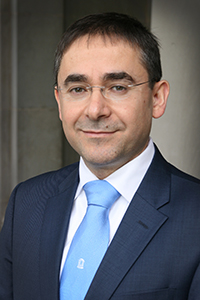Foaud Abd-El-Khalick, dean of the School of Education at UNC-Chapel Hill, is serving on a commission established by North Carolina Gov. Roy Cooper to advise on issues regarding the staffing and funding of public schools.

Abd-El-Khalick was named to the Governor’s Commission on Access to Sound, Basic Education, which is focusing on how North Carolina meets its duties as outlined in rulings from court cases that require the state to provide a “sound and basic” education to all students.
The commission includes 18 members appointed by Cooper from the fields of education, business, government, law, health care, psychology and counseling, and public safety. Abd-El-Khalick serves as the higher education representative on the commission.
The commission takes its name from landmark rulings in the court cases Leandro v. North Carolina in 1996 and Hoke County Board of Education v. North Carolina in 2004. The Leandro ruling requires North Carolina to identify specific resources needed to ensure that all children, including those who are at-risk or from rural and underserved communities, have access to “a sound, basic education.”
“All North Carolina children have a constitutional right to a quality public education that prepares them for the jobs and opportunities of the future,” Gov. Cooper said in a news release announcing formation of the panel. “This commission of experts will help identify how to improve our state’s public schools so that all students in this state receive the education they need to hrive.”
The governor’s office said the commission would take a comprehensive, inter-disciplinary approach to tackling the three key areas highlighted in the original Leandro ruling to ensure North Carolina is meeting its constitutional duty:
- Staffing each classroom with a competent, well-trained teacher;
- Staffing each school with a competent, well-trained principal; and
- Identifying the resources necessary to ensure that all children, including those at-risk, have an equal opportunity to obtain a sound, basic education.
The commission is working in conjunction with an independent consultant appointed by the parties to the Leandro case to help with the commission’s review and assessment.